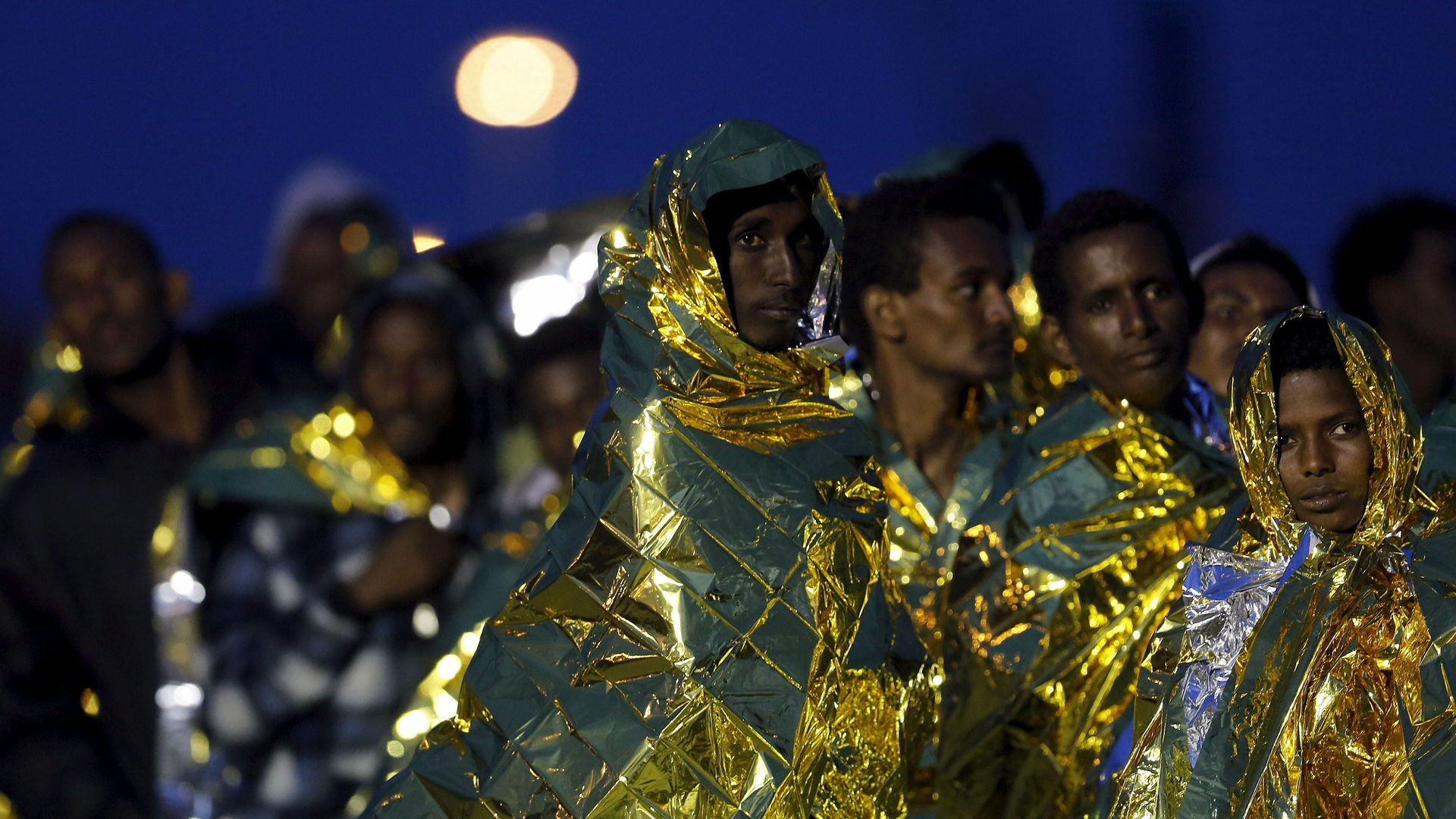This is the speech Matteo Renzi should give about Europe’s migrant crisis
Good morning everybody,


Good morning everybody,
As I address this European assembly, I feel that everything, other than your own personal kindness, is against me. But I hope that this short speech, perhaps late on arrival, will do justice to the greatness of the country I represent, and the intelligence of those listening.
During the period of Italian presidency of the EU, we have undervalued the issue of migrants. We, more than anyone else. We did not look for a shared solution for reasons we deemed strategic but were instead tactical. We hoped we could bring back the issue to negotiation agreements amongst EU members, perhaps revising the existing agreements.
The daily arrivals on Italy’s coasts, the paths of hope of those who leave from sub-Saharan Africa and try to cross through Hungary, their attempts to reach Spain from Morocco, and then from France to the UK, demand an immediate answer. An answer that is immediate, ample and—I’ll use an adjective that partially scares me, too—generous.
In my country and—from what I read—in yours too, those who exploit racial tension and use it to gain political consensus, say mockingly about the migrants: “Well then, let’s welcome them all.”
Well, today I feel the duty to say to my eminent colleagues at the European parliament: We will do exactly that. We will welcome them all.
We will welcome them, and give them a temporary permit that will legalize their stays in the whole European territory.
This answers a tactical need, but also a strategic one.
Tactically, we say forcefully to Europe that our borders are your borders. We share what is now a problem, and we can only solve it together: the Union is at stake.
Strategically, we tell each other that the coming revolution is far deeper, that our tools of asylum are not adequate for this time, that we must accept that it is impossible to separate those fleeing poverty from those who fleeing terror and persecution, because these three conditions—poverty, terror and persecution—are the fruit of politics that we too, Europe, have put in place over the past 200 years.
The rising awareness of our responsibility for this has become fuel for all sort of extremisms. It works as an ideological cover for more or less self-declared Islamic States. It represents a much bigger threat than the collective and informed management of a migration spurred by survival.
Mine is a complex position, in many ways unpopular, that will take its toll. From my government, in terms of votes. From my country, in terms of bilateral relationships with our allies, the same countries that have de-facto abolished Schengen without letting us know, and that consider Italy no more than a strip of sand in the middle of the Mediterranean. Including the UK, whose capital is one of the world’s most multicultural cities.
But then again, it’s no longer the time for tactics. A great Italian, Alcide De Gasperi, quoting an American theologian, used to say that politicians look toward the next elections, and statesmen toward the next generations. We have less time. Before we smell again the disgusting smell of explosive powder in our clean streets, where we stupidly think we are safe, we must start a cultural path toward a new and long-lasting season of peace. We must oppose reason to hysteria. Conscience to gut instinct.
That is how we will win, without ever fighting, World War Three.
And that is why I ask you, today, for an epic revolution of European immigration politics. I ask you to not put commercial interests before the dignity of human lives. I ask you to revise our economical policies towards Africa, changing the system to remove exploitation and replace it with commercial and industrial opportunities. I am appealing to Europe and to those Christian values that we have wanted to insert into the roots of our constitution. Values that contemplate solidarity before all. Good that calls for good. That seeks to change a problem into an opportunity.
Adesso. Now.
I ask you to start a revolution for which our children will one day thank us.
Let’s welcome them all.
Thank you for listening.
This post originally appeared here and was translated from Italian by Annalisa Merelli.